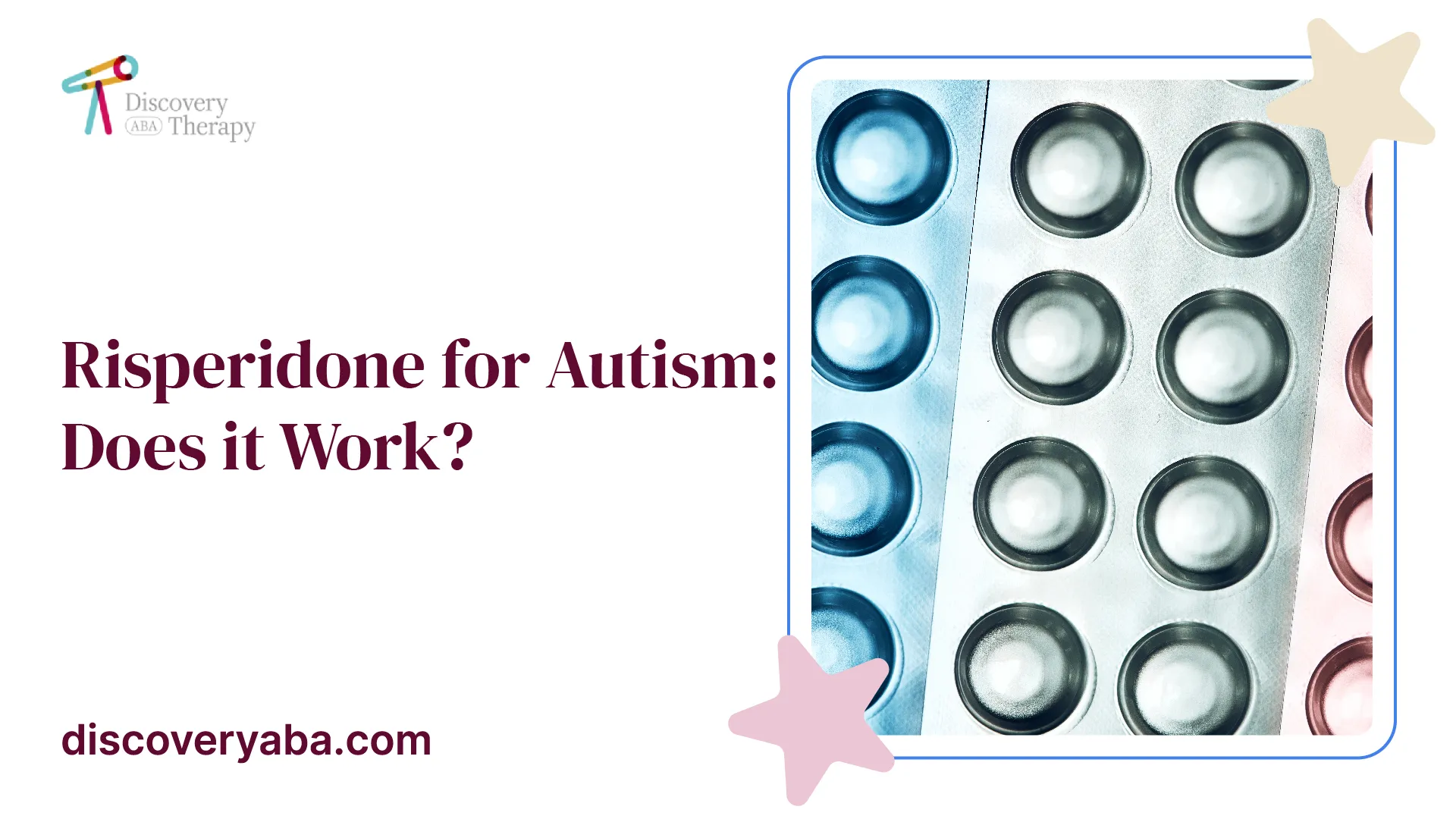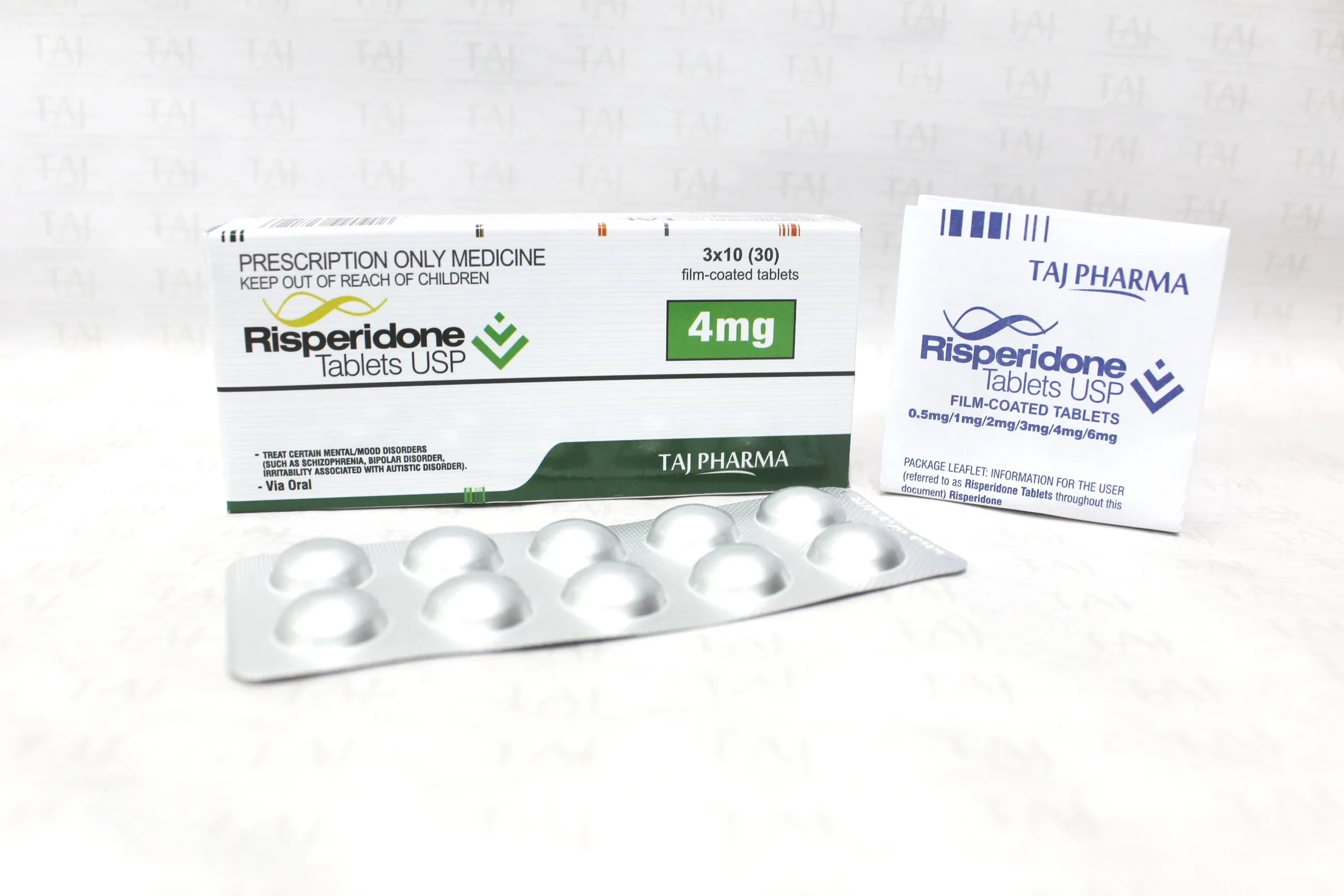Risperidone for Autism: Does it Work?
Risperidone has been shown to be effective in reducing irritability in children and adolescents with autism.


What Is Risperidone For Autism?
Risperidone is a medication that has been approved by the FDA for the treatment of irritability in children and adolescents with autism spectrum disorder (ASD). However, the question remains: does it actually work?

First, it's important to understand what irritability means in the context of autism. Irritability refers to behaviors such as aggression, self-injury, and tantrums that can be disruptive and harmful to both the individual with autism and those around them.
Risperidone works by blocking certain neurotransmitters in the brain, which can help to reduce these behaviors.
So, can it work? The answer is yes, but with some caveats. Studies have found that risperidone can be effective in reducing irritability in children and adolescents with ASD. However, it's important to note that it is not a cure-all and may not work for everyone.
In addition, like all medications, risperidone comes with potential side effects. The most common side effects include weight gain, sleepiness, and an increased risk of type 2 diabetes.
It's important to work closely with a doctor when taking risperidone to monitor for potential side effects and adjust the dosage as needed.
Another important consideration is that risperidone should not be used as a first-line treatment for irritability in autism. Before turning to medication, other interventions such as behavioral therapy should be tried. Medication should only be considered if these interventions have not been effective.
Effects of Risperidone in Autistic Children and Young Adults
While risperidone has been shown to be effective in reducing irritability in children and adolescents with autism, it is important to consider the potential long-term effects of the medication.
Studies have found that long-term use of risperidone can lead to an increased risk of metabolic syndrome, which includes symptoms such as high blood pressure, high blood sugar, and obesity.
In addition, there are concerns about the impact of risperidone on brain development in children and young adults. Research has suggested that the medication may affect brain structure and function over time.
It's also worth noting that while risperidone can be helpful in managing irritability, it does not address other core symptoms of autism such as social communication difficulties or repetitive behaviors.
Therefore, it's important for parents and healthcare providers to carefully consider the potential benefits and risks of risperidone before deciding to use it as a treatment option for individuals with autism spectrum disorder.
Risks and Benefits of Using Risperidone For Autism
As with any medication, there are potential risks and benefits to using risperidone as a treatment for irritability in children with autism spectrum disorder (ASD). It's important to weigh these carefully before making a decision about whether or not to use the medication.
Benefits of using risperidone may include a reduction in irritability behaviors such as aggression, self-injury, and tantrums. This can lead to improved quality of life for both the child with ASD and their caregivers.
In addition, some studies have shown that risperidone can also improve social interaction skills and reduce hyperactivity in children with ASD.
However, there are also potential risks associated with using risperidone. As mentioned earlier, common side effects include weight gain, sleepiness, and an increased risk of type 2 diabetes. Long-term use of the medication can also lead to an increased risk of metabolic syndrome.
There are also concerns about the impact of risperidone on brain development in children and young adults. Research has suggested that the medication may affect brain structure and function over time.
It's important for parents and healthcare providers to carefully consider both the potential benefits and risks of risperidone before deciding to use it as a treatment option for irritability in children with ASD. In some cases, other interventions such as behavioral therapy may be more appropriate or effective.
Long-Term Effects of Using Risperidone to Treat Irritability in Children with ASD
While risperidone has been shown to be effective in reducing irritability in children and adolescents with autism spectrum disorder (ASD), there are concerns about the long-term effects of using the medication.
Studies have found that long-term use of risperidone can lead to an increased risk of metabolic syndrome, which includes symptoms such as high blood pressure, high blood sugar, and obesity.
This is a serious concern because metabolic syndrome can increase the risk of heart disease, stroke, and other health problems.
In addition, there are concerns about the impact of risperidone on brain development in children and young adults.
Research has suggested that the medication may affect brain structure and function over time. This is particularly concerning because children's brains are still developing and changing rapidly.
Another potential long-term effect of risperidone use is a decreased quality of life for individuals with autism.
While reducing irritability can improve quality of life in some ways, it's important to remember that risperidone does not address other core symptoms of autism such as social communication difficulties or repetitive behaviors.
It's important for parents and healthcare providers to carefully consider both the potential benefits and risks of using risperidone before deciding to use it as a treatment option for irritability in children with autism.
In some cases, other interventions such as behavioral therapy may be more appropriate or effective. If risperidone is used, careful monitoring for potential side effects should be conducted regularly by a doctor.
Myths / Misconceptions About Risperidone
There are many myths and misconceptions surrounding the use of risperidone in individuals with autism spectrum disorder (ASD).
One common myth is that risperidone can "cure" autism or completely eliminate challenging behaviors. This is not true, as risperidone only targets irritability and does not address other core symptoms of autism.
Another myth is that all children with autism who exhibit irritability should be prescribed risperidone.
In reality, medication should only be considered after other interventions such as behavioral therapy have been tried and proven ineffective.
There is also a misconception that risperidone is always safe to use in individuals with autism. While it can be effective in reducing irritability, it comes with potential side effects such as weight gain and an increased risk of type 2 diabetes. Long-term use of the medication can also lead to an increased risk of metabolic syndrome.
It's important for parents and healthcare providers to educate themselves on the facts about risperidone and make informed decisions based on individual needs and circumstances.
FAQs
Here are some frequently asked questions about risperidone and its use in individuals with autism spectrum disorder:
How long does it take for risperidone to start working?
It can take several weeks for the full effects of risperidone to be seen. However, some individuals may experience improvements in their symptoms within a few days of starting the medication.
Can risperidone be used in adults with autism?
Yes, risperidone can be used to treat irritability in adults with ASD. However, it's important to work closely with a doctor to monitor for potential side effects.
Is it safe to stop taking risperidone suddenly?
No, it is not recommended to stop taking risperidone suddenly as this can lead to withdrawal symptoms such as nausea, vomiting, and insomnia. It's important to work with a doctor to gradually taper off the medication if needed.
Can risperidone be used alongside other medications?
In some cases, yes. However, it's important to work closely with a doctor when taking multiple medications as they can interact with each other and increase the risk of side effects.
How long should someone take risperidone for?
This will depend on the individual and their specific needs. Some individuals may only need to take the medication for a short period of time while others may need to take it long-term. It's important to work closely with a doctor to determine the appropriate duration of treatment.
These are just a few common questions about the use of risperidone in individuals with autism spectrum disorder. As always, it's important for parents and healthcare providers to carefully consider the potential benefits and risks before deciding on any treatment options for individuals with autism.
Summary
In summary, risperidone can be an effective treatment for irritability in children and adolescents with autism, but it's not a cure-all and comes with potential side effects. It should only be used after other interventions have been tried and under the close supervision of a doctor.
Does Your Child Have An Autism Diagnosis?
Learn More About How ABA Therapy Can Help
Find More Articles
Contact us
North Carolina, Nevada, Utah, Virginia
New Hampshire, Maine
Arizona, Colorado, Georgia, New Mexico, Oklahoma, Texas
.avif)




































































































